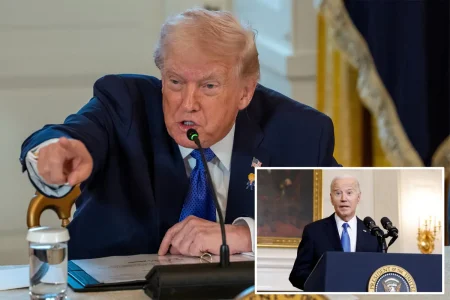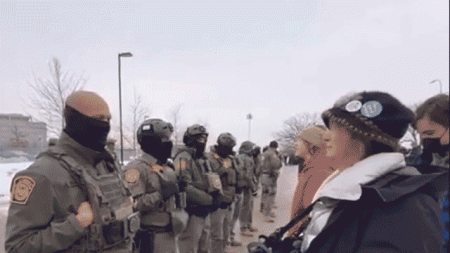Deadly Russian Missile Barrage Claims Over Two Dozen Lives Amid Zelensky’s Peace Initiative
Wave of Attacks Strikes Ukraine as President Pursues Diplomatic Solutions in Turkey
In a devastating escalation of the protracted conflict, Russian forces launched a coordinated barrage of missiles and drones across Ukraine on Wednesday, killing more than two dozen civilians and injuring scores more. The deadly assault occurred precisely as Ukrainian President Volodymyr Zelensky was in Turkey on a diplomatic mission aimed at revitalizing peace negotiations with Moscow, highlighting the stark contrast between ongoing diplomacy efforts and the brutal reality on the ground.
Rescue workers battled thick smoke and unstable infrastructure as they searched for survivors trapped in the rubble of a multistory residential building that suffered extensive damage. Firefighters extended long ladders toward collapsed upper floors where smoke billowed ominously, while emergency response teams worked tirelessly to evacuate residents from surrounding structures. “We’ve never seen destruction on this scale in our neighborhood,” said Iryna Kovalenko, 43, a local resident who escaped with minor injuries. “One moment I was preparing breakfast, the next our entire building was shaking and windows were shattering everywhere.”
Pattern of Escalation Raises International Concern
The timing of Wednesday’s attack follows a troubling pattern of Russian escalations coinciding with Ukrainian diplomatic initiatives, according to security analysts. This latest wave of strikes employed a sophisticated combination of cruise missiles, ballistic missiles, and Iranian-designed Shahed drones that overwhelmed Ukrainian air defense systems. Ukrainian Defense Minister Oleksiy Reznikov condemned the attacks as “deliberate targeting of civilian infrastructure” during a press briefing in Kyiv. “These are not military targets, but apartment buildings, hospitals, and energy facilities serving ordinary citizens preparing for winter,” Reznikov stated, as emergency crews continued to assess casualties in multiple regions.
International response was swift and unequivocal. European Commission President Ursula von der Leyen characterized the strikes as “abhorrent war crimes” and pledged additional air defense systems for Ukraine. U.S. Secretary of State Anthony Blinken issued a statement reaffirming Washington’s “unwavering commitment to Ukraine’s sovereignty” and announced an accelerated delivery of Patriot missile systems. Meanwhile, humanitarian organizations mobilized emergency supplies to affected areas, with the Red Cross establishing temporary shelters for displaced residents. “What we’re witnessing is an unfolding humanitarian crisis as winter approaches,” said World Health Organization regional director Hans Kluge. “Medical facilities are already overwhelmed, and damage to heating infrastructure creates additional life-threatening conditions.”
Zelensky’s Diplomatic Mission Continues Despite Attack
Despite the devastating news from home, President Zelensky proceeded with his scheduled talks in Ankara, where he met with Turkish President Recep Tayyip Erdoğan, who has positioned himself as a potential mediator in the conflict. “Today’s attacks only strengthen our resolve to pursue every diplomatic avenue,” Zelensky told reporters following the meeting. “Ukraine seeks peace, but a just peace that respects our sovereignty and territorial integrity.” The Ukrainian delegation presented a comprehensive peace proposal that includes international security guarantees, humanitarian corridors, and a phased withdrawal of Russian forces.
Turkey, which maintains diplomatic and economic ties with both Ukraine and Russia, represents a crucial diplomatic channel. President Erdoğan emphasized Turkey’s commitment to facilitating dialogue between the warring parties. “We cannot accept the loss of innocent lives in this conflict,” Erdoğan stated. “Turkey stands ready to host peace talks and provide whatever assistance is necessary to end the bloodshed.” Intelligence sources indicate that Turkish officials have maintained backchannel communications with Moscow throughout the conflict, though the Kremlin has publicly dismissed recent peace overtures as “failing to acknowledge realities on the ground.”
Humanitarian Crisis Deepens as Winter Approaches
The latest attacks have exacerbated an already dire humanitarian situation across Ukraine. Critical energy infrastructure was damaged in at least five regions, according to Ukraine’s Energy Minister Viktor Havryshyn. “We are facing rolling blackouts affecting approximately 30% of our grid capacity,” Havryshyn explained. “Engineers are working around the clock to restore service, but with temperatures already dropping below freezing in northern regions, this creates life-threatening conditions for vulnerable populations.”
International aid organizations report dwindling medical supplies and strained healthcare systems. “Hospitals are operating on emergency generators while treating an influx of casualties,” said Médecins Sans Frontières coordinator Natalia Serdiuk. “Many facilities lack basic medicines, thermal blankets, and even clean water.” The United Nations estimates that over 8 million Ukrainians remain internally displaced, with this latest attack likely to increase that number significantly. European Union humanitarian commissioner Janez Lenarčič announced an emergency allocation of €100 million for winterization efforts in Ukraine, stating: “We cannot allow civilians to freeze while this conflict continues. European solidarity must translate into concrete support for those suffering through no fault of their own.”
Strategic Implications and Global Response
Military analysts suggest this latest attack demonstrates Russia’s strategic shift toward targeting civilian morale and critical infrastructure as battlefield momentum has stalled in recent months. “Russia appears to be doubling down on a strategy of making Ukraine uninhabitable during winter months,” explained retired NATO commander General James Stavridis. “This approach seeks to break civilian resolve and force Ukraine into accepting unfavorable peace terms.” Ukrainian intelligence services report that Russia has recently received new shipments of Iranian-made drones and North Korean artillery shells, indicating preparation for sustained operations through winter.
The international community faces mounting pressure to strengthen its response. NATO Secretary General Mark Rutte called an emergency meeting of the North Atlantic Council, while the UN Security Council scheduled an urgent session to address the escalation. “These indiscriminate attacks against civilians demand a unified response,” stated UN Secretary-General António Guterres. “Accountability for war crimes remains essential to any future peace.” Meanwhile, global financial markets reacted to the escalation with increased volatility in energy prices and renewed concerns about food security, as Ukraine’s agricultural exports remain critical to global supply chains. As rescue operations continue across Ukraine and diplomatic efforts proceed in Turkey, the devastating contrast between peace initiatives and battlefield reality underscores the complex challenges facing both Ukraine and the international community in their search for a resolution to Europe’s deadliest conflict since World War II.








